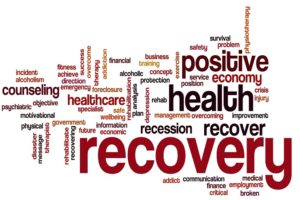
Each day over 130 Americans die from an opioid overdose. Programs and services that address both opioid prevention and opioid recovery are essential at the local, state, and federal levels. While research to date has focused on opioid prevalence and risk, there have been few studies on recovery practices. Individuals recovering from opioid addiction are in need of extensive services that address social, emotional, and physical barriers and challenges. A new study published in the Journal of Addiction Medicine looked for the first time at the prevalence numbers for opioid recovery and found that “1.18 million American adults have resolved a primary opioid use problem.”
Using data from the 2017 National Recovery Survey published out of the Recovery Research Institute at Massachusetts General Hospital, the authors, also from the Recovery Research Institute, compared adults with opioid problem resolution (OPI) with those who recovered from alcohol addiction. Individuals with OPI in mid-recovery (defined as 1 to 5 years) were more likely to use formal treatment programs (including pharmacotherapy and recovery support services) than those recovering from alcohol addiction. The differences in treatment options between the opioid and alcohol groups was not noted in the first year, showing the need for those suffering from opioid addiction to focus on long-term treatment for greater success. Another key finding was that those with OPI were more likely to report lower self-esteem than the alcohol group, showing how these individuals may feel more isolated and discouraged from seeking treatment and support services. Opioid recovery programs offering ongoing support, and meeting people where they are, could help with that.
Opioid addiction science is not well understood, however with this research and others like it, we can open the door to opportunities for new programs and services that can reach those in need.
###
About the Center for Safe Internet Pharmacies (CSIP)
The Center for Safe Internet Pharmacies (CSIP), a non-profit organization founded in 2011 by the White House, represents the technology sector and commerce intermediaries including Google, Microsoft, Facebook, Oath, UPS, PayPal, MasterCard, Discover, American Express, and .Health. CSIP’s mission is to promote industry best practices as it relates to illegal online pharmacies, and educating consumers about safe purchasing of prescription drugs.

